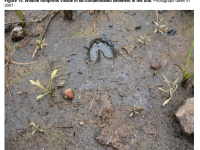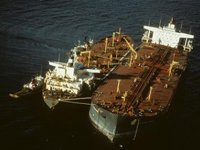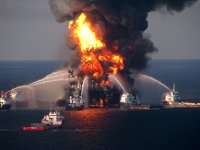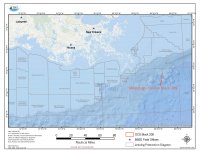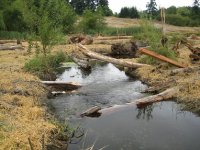NOAA Economist Shares Data from the Deepwater Horizon Lost Recreational Use Assessment
August 19, 2016
In August, graduate students, academics, and industry consultants heard firsthand about challenges in assessing natural resource damages for the Deepwater Horizon event, the largest off shore oil spill in U.S. history. NOAA Economist Adam Domanski participated in a panel discussion at Camp Resources, an annual environmental economics workshop hosted by the Center for Environmental and Resource Economic Policy, at North Carolina State University. The panel focused on “lost recreational use,” one of many complex aspects of the assessment that also included an extensive evaluation of the environmental harm caused by the spill. Additional panel members, Roger von Haefen (North Carolina State University) and Frank Lupi (Michigan State University), rounded out the discussion with their contributions to the assessment.
The panel speakers educated participants about the natural resource damage assessment process, as well as data collected, resources examined, valuation models selected, and lessons learned from the assessment. For example, the lost recreational use assessment team conducted 42,000 interviews that collected information on 28,000 trips to coastal areas in the southeastern U.S. This was one of the largest data sets on recreational use to coastal areas ever collected and can serve as the basis for future research. Throughout the assessment, the research team also evaluated many issues prevalent in the published literature, such as a beachgoer’s “opportunity cost of time,” and those findings are available in a set of technical memos.
The work performed by NOAA’s assessment team was critical to the April 4, 2016, settlement with BP for $8.8 billion for restoration to address natural resources injuries stemming from the Deepwater Horizon oil spill.


